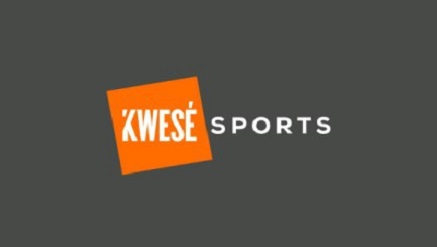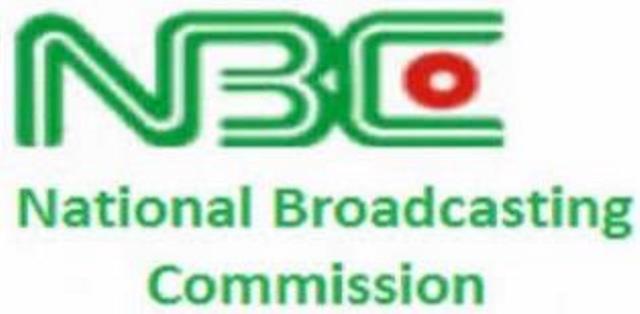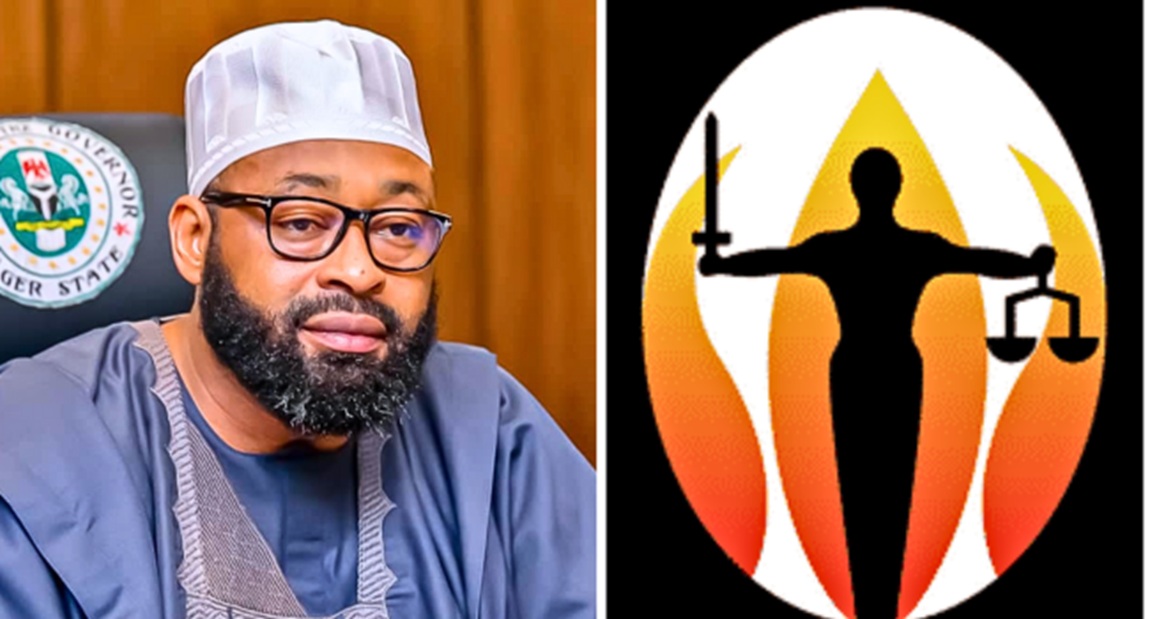Broadcasting
Kwese TV, Africa’s Newest Satellite Network Begins ‘Pay-Per-View’ Broadcast

Kwesé TV, the brainchild of Econet and Africa’s newest satellite network has launched.
The Kwesé Network’s Pay-TV satellite service started broadcasting on Monday, beaming Kwesé’s full suite of superior entertainment and sports programming to households in Ghana, Rwanda and Zambia, which make up the initial phase of the Kwesé TV rollout across Africa, other countries will be announced in due course.
Viewers in these countries can now access Kwesé TV via Kwesé’s own satellite and set-top-box (decoder) available at leading retailers.
Kwesé TV has launched with a full-suite of top-shelf content which is unprecedented for a new broadcaster.
Having already showcased its impressive portfolio of sports assets on its premium sports channels Kwesé Free Sports, Kwesé Sports 1 and Kwesé Sports 2, Kwesé TV introduces some fantastic entertainment programming to the mix including some exclusive, first-to-market content as well as original programming.
In addition to great content and its multi-platform, multi-screen broadcasting model, Kwesé’s key differentiator is its innovative payment options that offer flexibility and convenience. Kwesé offers a ‘pay-as-you-watch’ service that enables viewers to purchase three or seven day passes to its full programming bouquet so they never have to miss out on trending sports or entertainment programming.
These payment options, which turn the traditional pay TV model on its head, provides unparalleled access to premium programming at an affordable price.
The monthly subscription option, which gives subscribers access to the full suite of Kwesé TV programming, is available at an astonishing $25 (USD) per month excluding VAT!
Commenting on the launch, Joseph Hundah, Econet Media president and group chief executive Office said, “We are a dynamic, young company built to respond to the way audiences want to access and consume content, whether you subscribe for the full Kwese TV bouquet, watch amazing sports programming free-to-air or choose to watch TV on the move, we aim to be the first choice for viewers all over Africa by bringing them the best in programming, at an affordable price making it accessible to more people than ever before,” said Hundah.
The network’s approach to programming is to give audiences relevant and engaging content. It’s focused Sports and Entertainment bouquet prioritises quality over quantity with a slim bouquet of 50+ channels with content that will appeal to a broad audience base and has been specially curated for Africa’s hip urban youth, young families, movie and drama buffs, professionals and avid sports fans.
Recognising the diversity of its potential audience, Kwesé has focused on meeting their common need for engaging and relevant content that is accessible and affordable.
Kwesé’s multi-platform offering cuts across linear, mobile and digital, making content accessible though free-to-air TV, mobile applications, web streaming and pay (linear) TV.
This launch marks the extension of the Kwesé TV brand, which has already been in the market through its free-to-air channel Kwesé Free Sports, its two premium sports channels KS1 and KS2, the Kwesé App and the KweseSports(dot)com digital platform.
“The launch of Kwesé TV completes the story we started telling 18 months ago. We have spent the past few months building this diverse media company which will showcase the very best in international content and act as platform to showcase the best that our continent has to offer. Kwesé TV promises to engage and entice through our unique mix of channels and programming,” concludes Hundah.
To subscribe to Kwesé’s pay TV network in Ghana, Rwanda and Zambia visit www.Kwese.com for more information. Outside of the initial launch markets viewers can access selected Kwesé programming including Africa’s largest and only Pan-African Free-To-Air channel Kwesé Free Sports through Kwesé’s mobile app.
Broadcasting
Idris, Information Minister Says Only NBC can Suspend Broadcast Licences

Mohammed Idris, minister of information, has reacted to the closure of Badeggi FM radio station in Niger state.

Mohammed Idris, minister of information,
On Friday, Umar Bago, governor of Niger state, ordered the commissioner of police to seal off Badeggi FM radio station over alleged incitement of violence.
A statement by Bologi Ibrahim, chief press secretary to the Niger governor, said the “daily activities of the radio station have been unethical”.
“Governor Bago also accused the owner of the station of incitement of the people against the government and directed that the license of the radio station be revoked,” the statement reads in part.
Reacting in a statement at the weekend, Rabiu Ibrahim, special assistant (media) to Idris, said the ministry has noted concerns raised by stakeholders in the media industry over the governor’s directive.
Idris said the National Broadcasting Commission (NBC) has the legal authority to suspend or revoke broadcast licences.
“While acknowledging the concerns raised, the Ministry notes that the suspension of broadcasting licenses falls within the purview of the National Broadcasting Commission (NBC), as stipulated by law,” he said.
“In light of this, the Ministry welcomes the decision of the Niger State Government to formally report the perceived “unethical behavior” of Badegi FM to the NBC for resolution.
“The Minister appeals to all parties to remain calm, assuring that the NBC has the necessary mechanisms to resolve the issue in a fair and impartial manner.”
According to the information posted on its website, Badeggi Radio 90.1 FM, Minna, is a private radio station established in 2020 by Shuaibu Badeggi.
Broadcasting
Government of Ghana Slams MultiChoice, Insists on DStv Price Cut

Samuel Nartey George, minister for Communications, Digital Technology and Innovation, Government of Ghana, has accused MultiChoice Ghana of showing disregard for Ghanaians by refusing to reduce its DStv subscription fees despite favourable economic indicators.

In a social media post on Sunday, August 3, the minister said the company’s latest statement vindicates his long-held view that it does not take Ghanaians seriously.
“I have read the release by DStv Ghana and taken full consideration that they vindicate my earlier position that they simply do not take the Ghanaian people serious enough,” he wrote.
The minister had earlier given MultiChoice Ghana a seven-day ultimatum, ending August 7, to review its bouquet prices downward or face the suspension of its operating licence by the National Communications Authority (NCA).
He cited the cedi’s appreciation, dropping inflation, and reduced fuel prices as justification for the directive.
But MultiChoice, in a statement dated August 3 and signed by its Alex Okyere, managing director, said while it acknowledges the recent economic gains, it finds the demand to reduce prices untenable.
“While we appreciate the recent appreciation of the Cedi (which we have never referred to as a ‘fluke’), it is not tenable to reduce the DStv subscription fees in the manner proposed by the Minister,” the statement said.
The company said it had engaged the Ministry and the NCA in good faith and remained committed to resolving the matter through constructive dialogue for the interest of its stakeholders and staff.
Sam George, however, dismissed these claims, noting that the company responded differently when it was faced with similar pressure in Nigeria.
“The same group operating in Nigeria reversed price increases when the Nigerian authorities sued them. The Nigerian House of Representatives took the matter up and ordered a suspension of the increases. They complied,” he said.
He also revealed details of an alternative proposal by the company, which he rejected.
According to him, MultiChoice had suggested maintaining the current prices while halting the transfer of revenue to their headquarters.
“In all honesty, that offer lacks any logic in my estimation. The essence of my action is to see Ghanaians pay a fair price for the services offered. How does this proposal solve the real issue?” he asked.
I have read the release by DStv Ghana and taken full consideration that they vindicate my earlier position that they simply do not take the Ghanaian people serious enough.
The same Group operating in Nigeria reversed price increases in Nigeria when the Nigerian authorities sued them.
The Nigerian House of Representatives took the matter up and ordered a suspension of the increases. They complied.
This year, in April, at a time the Ghanaian cedi had seen a ~10% appreciation against all major currencies, inflation had dropped by over 5% and fuel prices had also dropped, DStv announced and implemented a 15% increase.
I believe in the interest of transparency, I make public the alternate proposal that DStv offered to me that I flatly rejected.
They proposed that I allow them maintain the collection of the exorbitant bouquet prices as they stand but order them not to send the revenue to their headquarters.
In all honesty, that offer lacks any logic in my estimation. The essence of my action is to see Ghanaians pay a fair price for the services offered. How does this proposal solve the real issue?
For far too long, corporations have fleeced the Ghanaian people.
There has been a RESET and it demands a new style of public service that is fiercely protective of the Ghanaian people.
I remain empathetic to the Ghanaian staff of DStv but I believe that they should stand with the rest of us as we demand what is right for us.
I remain open to “constructive engagements” that are centred on PRICE REDUCTION. Anything else is tangential and of no consequence.
Broadcasting
SERAP Issues 48-Hour Ultimatum to Niger Governor Over Badeggi FM Closure

Socio-Economic Rights and Accountability Project (SERAP) has given Governor Umar Bago of Niger State a 48-hour ultimatum to reverse the decision to shut down Badeggi FM 90.1, a privately owned radio station located in Minna, the state capital.

Governor Umar Bago
SERAP made the demand in a letter dated August 2, signed by its Deputy Director, Mr. Kolawole Oluwadare. The organisation described the governor’s directive as arbitrary and unlawful, urging immediate reinstatement of the station’s licence and withdrawal of the alleged threat to demolish the premises.
The group also called for the protection of the station’s owner, Mr. Shuaibu Badeggi, and staff members, citing rising concerns over media repression. It warned that the government’s actions risk violating Nigeria’s constitutional provisions and international obligations on press freedom and human rights.
Gov. Bago had, on August 1, ordered the immediate closure of Badeggi FM, citing unethical journalism, incitement, and opposition to his administration’s New Niger Development Agenda.
He directed the state’s Commissioner of Homeland Security to profile the owner and also threatened demolition of the station’s facility.
Reacting to the development, the Nigerian Bar Association (NBA) described the action as executive rascality, stating that only the National Broadcasting Commission (NBC) has the authority to revoke a broadcast licence.
NBA President, Mr. Afam Osigwe, urged security agencies to disregard unlawful orders that undermine constitutional rights.
SERAP warned that failure to comply within the specified timeframe would prompt legal action to uphold the public’s right to access information and protect media freedom in the state.

 Telecom3 days ago
Telecom3 days agoHistory as MTN Nigeria Becomes First to Hit ₦10 Trillion Market Cap @ NGX

 Telecom3 days ago
Telecom3 days agoMTN Nigeria’s CAPEX Soars Nearly 300 Percent to ₦565.7Bn in Q1 2025

 Telecom3 days ago
Telecom3 days agoMTN Nigeria Celebrates Super Falcons with ₦150 Million Reward After WAFCON Triumph

 General News3 days ago
General News3 days agoNigeria Sends Egusi, Others to Space @ NASA’s Crew-11 Mission Launch

 Telecom3 days ago
Telecom3 days agoVitel Wireless Rolls Out 50,000 SIM Cards, eSIMs

 General News3 days ago
General News3 days agoAfDB Approves $46m to Transform Healthcare in Sokoto State

 General News3 days ago
General News3 days agoNITDA DG says Nigeria’s Digital Economy Will Empower Citizens, Bridge Divides, and Drive Unity

 News3 days ago
News3 days agoExperts Caution e-commerce Operators on Eco-friendly Materials














